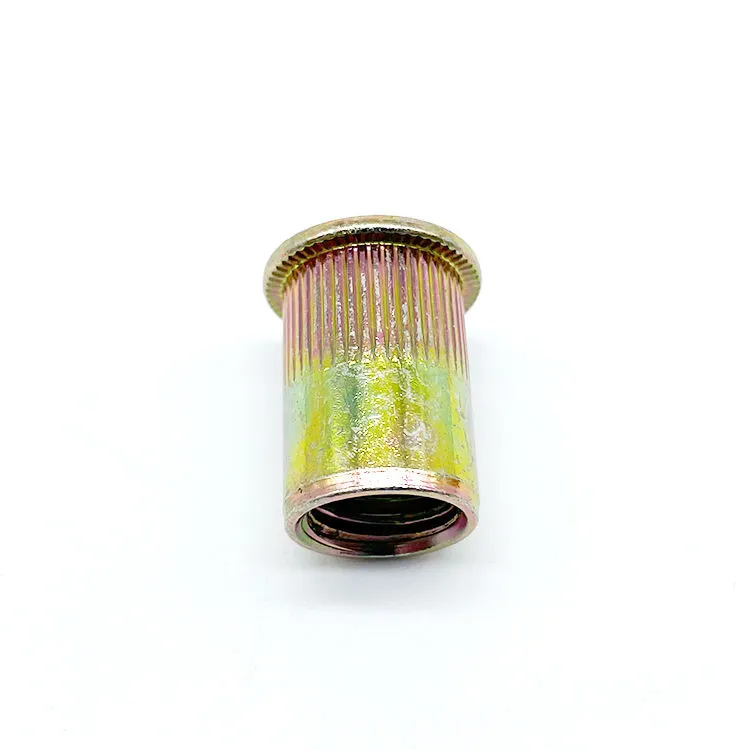

M16 Washers Selection Guide for Optimal Performance in Various Applications
Sep . 28, 2024 16:26 Back to list
M16 Washers Selection Guide for Optimal Performance in Various Applications
Understanding M16 Washers Essential Components for Secure Fastenings
When it comes to construction and mechanical assembly, the smallest components can often have the most significant impact. One such component is the washer, specifically the M16 washer. As a vital element in securing bolts and other fasteners, M16 washers play an essential role in various industries, ensuring stability and safety in numerous applications. In this article, we will delve into the characteristics, types, and applications of M16 washers.
What is an M16 Washer?
An M16 washer is designed to be used with M16 size bolts, typically measuring 16 mm in diameter. Washers are mechanical components that provide a larger surface area for the nut or bolt head to distribute the load effectively. This distribution helps prevent damage to the surface being fastened and enhances the overall integrity of the connection. M16 washers are commonly made from a variety of materials, including steel, stainless steel, and plastic, depending on the application requirements such as load, corrosion resistance, and environmental factors.
Types of M16 Washers
There are several types of M16 washers, each serving a specific purpose
1. Flat Washers The most common type, flat washers provide a smooth surface for nuts and bolts. They help to distribute the load over a larger area, reducing the likelihood of damage to the assembly.
2. Spring Washers These are used to maintain tension in a bolted connection. Spring washers (or lock washers) are designed to prevent loosening due to vibrations, making them ideal in applications where movement is expected.
3. Lock Washers Similar to spring washers, lock washers are used to prevent fasteners from loosening over time. They often have a split design that grips the fastener, providing additional resistance against vibration.
4. Fender Washers With a larger outer diameter, fender washers are useful in applications that require a broader load distribution or added surface area coverage.
m16 washers

5. Sealing Washers These washers are designed to provide a watertight or airtight seal and are often used in plumbing and automotive applications where leakage prevention is critical.
Applications of M16 Washers
M16 washers find use across various industries, including automotive, construction, aerospace, and manufacturing. They are integral in assemblies such as
- Structural Engineering M16 washers are frequently employed in bolted connections in building frames and bridges, where they help ensure safety and integrity by distributing loads effectively.
- Automotive Applications In vehicles, M16 washers are used in the assembly of engines, chassis, and body components, ensuring robust connections that can withstand mechanical stress and vibrations.
- Machinery and Equipment In heavy machinery, M16 washers contribute to the reliable operation of equipment by preventing the loosening of critical components due to movement and vibration.
- Home Improvement Projects DIY enthusiasts often use M16 washers in a variety of applications, from assembling furniture to securing fixtures and fittings.
Conclusion
M16 washers may seem like small, simple components, but their importance in ensuring the integrity of fastened connections cannot be overstated. By selecting the appropriate type of M16 washer for a specific application, professionals and DIY enthusiasts alike can enhance the durability and reliability of their assemblies. Whether you are involved in heavy construction or simple home repairs, understanding the role of M16 washers is crucial for achieving strong and safe results. In a world where precision and safety are paramount, these humble components serve as the bedrock of countless mechanical systems.
Latest news
-
Hot Dip Galvanized Bolts-About LongZe|High Strength, Corrosion Resistance
NewsJul.30,2025
-
High-Strength Hot Dip Galvanized Bolts - Hebei Longze | Corrosion Resistance, Customization
NewsJul.30,2025
-
Hot Dip Galvanized Bolts-Hebei Longze|Corrosion Resistance&High Strength
NewsJul.30,2025
-
High-Strength Hot-Dip Galvanized Bolts-Hebei Longze|Corrosion Resistance&High Strength
NewsJul.30,2025
-
Hot Dip Galvanized Bolts-Hebei Longze|Corrosion Resistance&High Strength
NewsJul.30,2025
-
Hot Dip Galvanized Bolts - Hebei Longze | Corrosion Resistance, High Strength
NewsJul.30,2025

